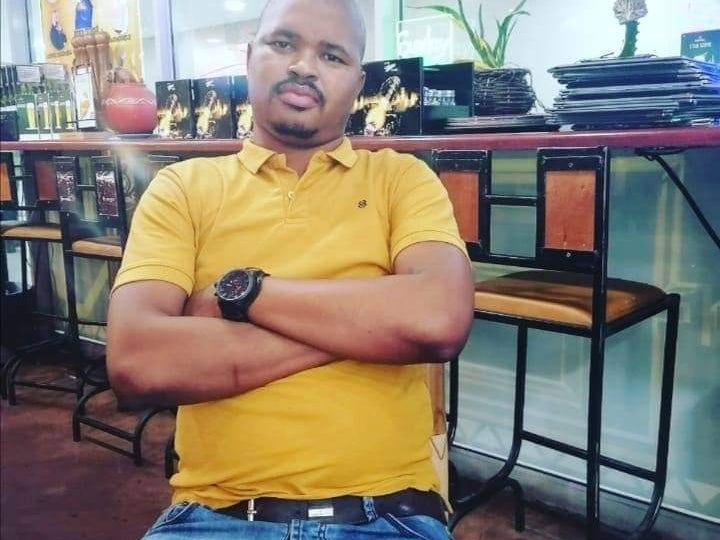
36-Year-old father seeks lifesaving blood stem cell transplant
Unathi Mtengwane was diagnosed with T-Cell Acute Lymphoblastic Leukaemia in March 2017. This was after suffering from severe fatigue for almost two months before seeking medical attention. He attributed the feelings of tiredness to the fact that he was working excessive hours to provide for his wife and three children.
After receiving the life-threatening diagnosis, Mtengwane immediately began intensive chemotherapy and radiation of his brain and spine. It was with great relief that the family received the news of his remission in November 2017 and he was placed on maintenance treatment.
Unfortunately, in July 2021, during a routine check-up, doctors identified molecular cancer in his system and confirmed that he would need to undergo a lifesaving blood stem cell transplant as soon as possible. It was at this point that Mtengwane reached out to DKMS Africa to assist in the search for a transplant donor match.
His case is particularly critical as his ethnicity puts him at a further disadvantage. According to various global studies, racial minorities are much less likely to find a suitable blood stem cell donor than their counterparts of European descent. Patients of African descent have less than 20% likelihood of finding a match, compared to that of 75% for White patients.
In addition, patients are more likely to find a stem cell match from donors of similar ethnicity, and much fewer Black South Africans are registered.
“As a Black man, cancer is not something that one expects on your doorstep,” says Mtengwane, "but cancer is not specific to gender or race - it can affect anyone, and as a community, we need to educate ourselves and seek medical attention, instead of waiting for ourselves or someone close to us to be affected - early diagnosis is key,” he says.
The Mtengwane family has already engaged the local community who have been encouraging and supportive thus far, however much more help is needed from the public at large to come forward and register as blood stem cell donors.
DKMS Africa is the South African entity of the global DKMS family. DKMS is a stem cell donor registry and has registered over 11 million donors worldwide. Anyone who is healthy and between the ages of 18 and 55 is eligible to register and if one is a successful match, the process of donating blood stem cells is as painless as donating blood, much like donating blood platelets. To register as a donor is a quick and simple process that involves a non-invasive cheek swab.
The public may also engage with DKMS Africa about hosting an in-person donor drive in their area. Alternatively, individuals may register online at www.dkms-africa.org. Once you have registered online, a donor registration kit is sent to you via courier and then collected when you have completed the process. Every new donor registered gives hope to Unathi and patients like him.
For more information or to register as a blood stem cell donor, please visit www.dkms-africa.org or call 0800 12 10 82, weekdays between 8.30 am and 4.30 pm.
References:
Science in the News. 2019. Racial Minorities Face a Dearth of Stem Cell Donors. Available here: Racial Minorities Face a Dearth of Stem Cell Donors - Science in the News (harvard.edu)
The New England Journal of Medicine. 2014. HLA Match Likelihoods for Hematopoietic Stem-Cell Grafts in the U.S. Registry. Available here: HLA Match Likelihoods for Hematopoietic Stem-Cell Grafts in the U.S. Registry | NEJM